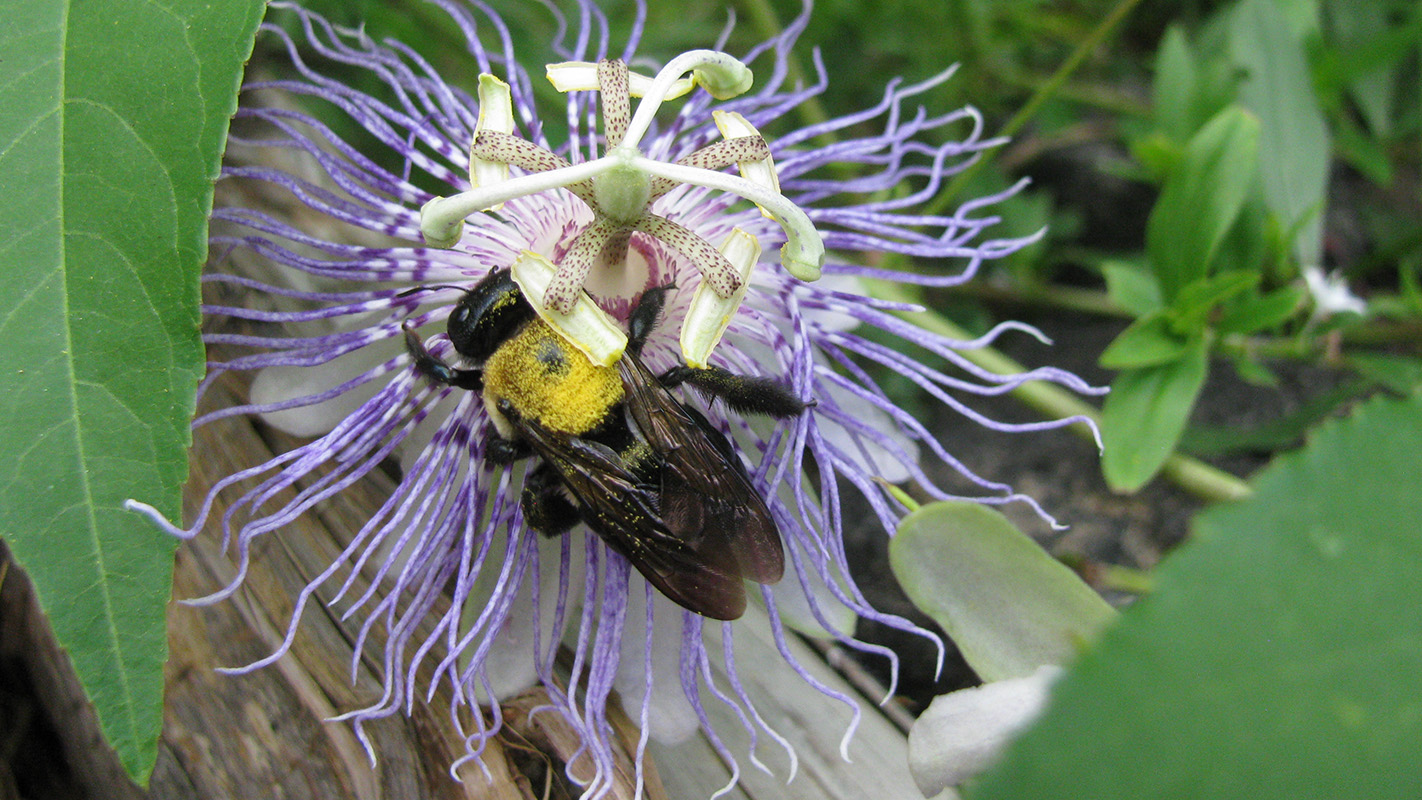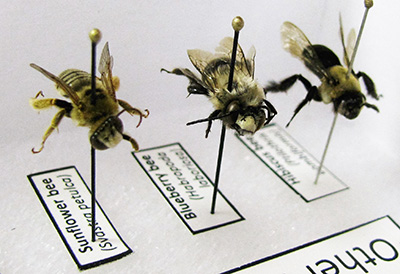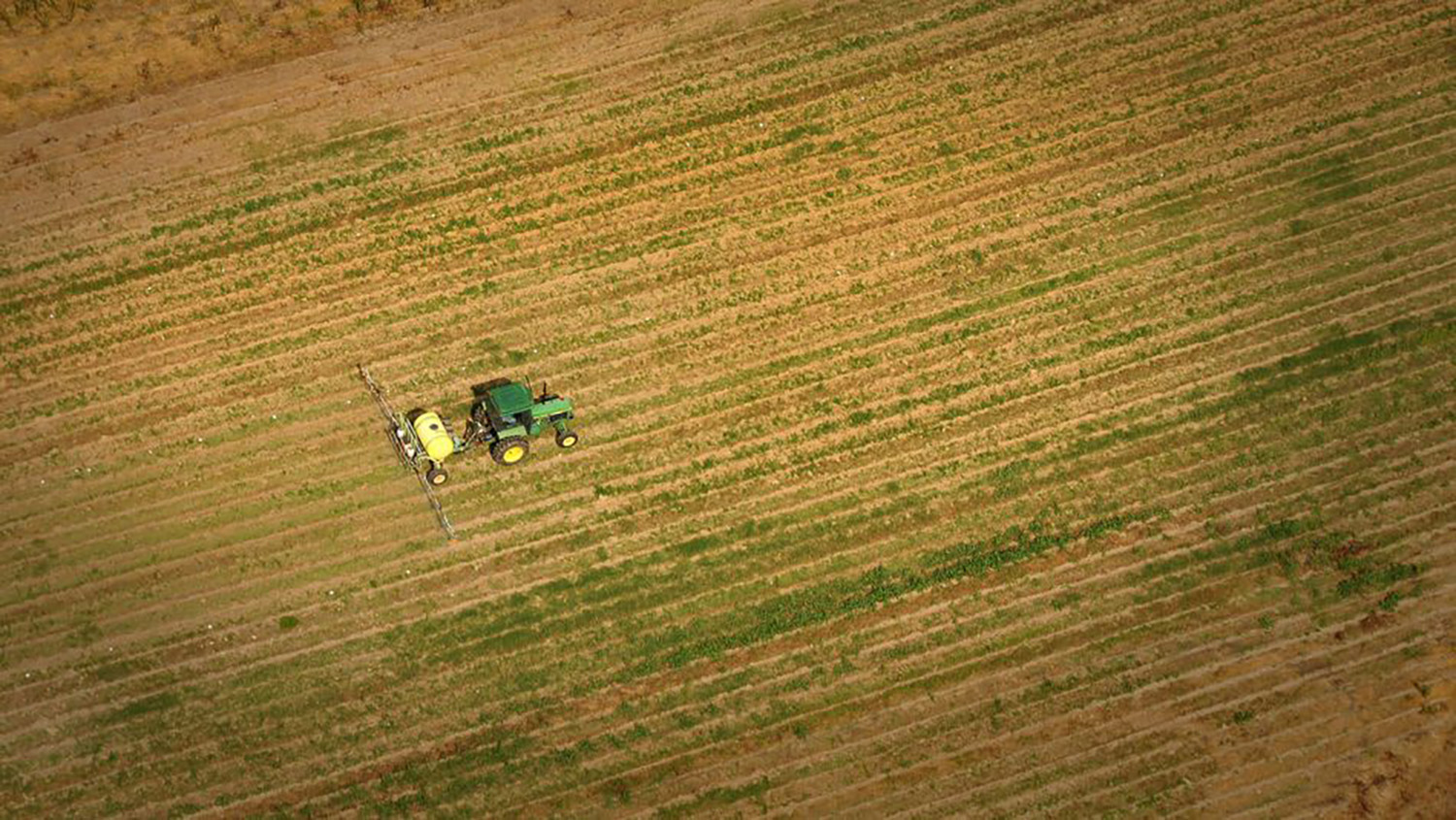Expanding Outreach to Support Bees and Other Pollinators

A lot of people want to know what they can do to help bees – and a new initiative at NC State University is aimed at helping to meet that demand.
Declining populations of pollinator species, and bees in particular, have garnered widespread attention in recent years. And that has led to increased public interest in bees and what can be done to protect them.
This, in turn, has led to widespread requests from community groups, companies and nonprofit organizations for presentations or educational materials about pollinators.

“Over the past two years, we have conducted more than 40 outreach events, reaching more than 70,000 people – and there are often opportunities that we’re not able to take advantage of,” says Elsa Youngsteadt, an entomologist and research associate at NC State.
To help reach more people, NC State is now launching an initiative to train volunteers and extension agents around North Carolina to conduct their own pollinator outreach and education events. The project is funded by an NC State University Extension, Engagement, & Economic Development Seed Grant.
“We want to help people understand and appreciate the biology and ecology of bee species, such as the role of native bees in pollinating not only ornamental flowers, but important crops like blueberries,” Youngsteadt says.
“For example, most people don’t fully appreciate the diversity of bee species found even in urban environments,” Youngsteadt says. “Over the past two years, I’ve found 70 bee species in my own yard – and I live in Raleigh.”
The goal is also to provide people with information about what they can do to help create and protect environments that bees need to thrive, even small spaces in urban and suburban areas. [Note: you can find out how NC State is working to make its campus more welcoming for pollinators here.]
When it comes to helping pollinator species, outreach efforts focus on two areas: nesting habitat and food sources.
Many people are unaware that about 70 percent of bee species make their nests in the ground. So, one thing that people can do to support bees is to leave thinly-vegetated, unmulched areas around their homes. Those areas can attract ground-nesting bees.
“These could even be potted plants, or areas around a garden that aren’t heavily tilled,” Youngsteadt says.
The outreach materials also explain how people can create habitat for cavity-nesting bees, such as mason bees and leafcutting bees. This can be done by simply bundling cut bamboo or natural reeds together and attaching them to a fence, shed or trellis.
In terms of food supply, there is a lot of information already available on which plants are most attractive for supporting North Carolina’s native bee species.
“Debbie Roos, an extension agent in Chatham County, is a real leader in this area,” Youngsteadt says. “She has created a host of resources that are extremely useful for gardeners who are interested in supporting pollinator species, for everyone from large-scale gardeners to those working with a single window box.”
The NC State training initiative will also be disseminating outreach materials across North Carolina, including specimen display boxes that can be used to help people recognize various kinds of bees found in the state.
The initiative kicks off June 30 with a public webinar led by Youngsteadt and Roos, which is aimed at master gardeners and extension agents. More information on the webinar is available here.
Additional resources can be found at the initiative’s new native pollinator website: http://ecoipm.org/native-pollinators/.
- Categories:


